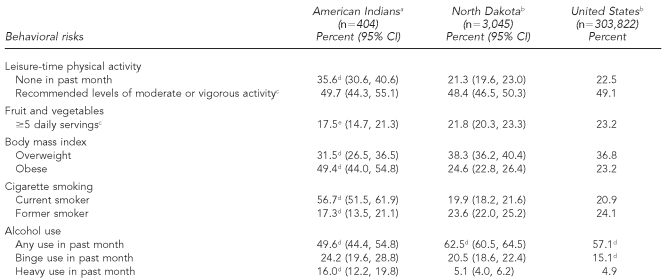Table 2.
Examining disparities in behavioral risks in a 2004 sample of American Indians compared with populations in North Dakota and the U.S.
aAmerican Indian sample data were adjusted for age and gender using direct standardization to the 2000 U.S. population.
bNorth Dakota and U.S. proportions presented are from the weighted data available from the Centers for Disease Control and Prevention.
cData from 2005 North Dakota (n=4,010) and U.S. (n=356,112) samples were substituted because data were not collected in 2004.
dProportions are significantly different from those in the same row (p<0.05) based on Chi-square analysis.
eThe American Indian sample proportion is significantly different (p<0.05) from the U.S. proportion, but not the North Dakota (ND) proportion (p>0.05), and the ND and U.S. proportions are not significantly different (p>0.05).
CI = confidence interval

